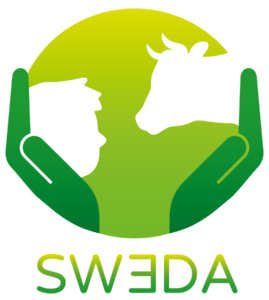The first international workshop took place in Perugia (Italy) and was organized by the University of Perugia – Department of Agricultural, Food and Environmental Sciences (DSA3), with logistic support from EGInA, the European Grants International Academy. The students were involved in practical activities and technical visits related to the competencies developed in Module 1- Sustainable agro-livestock farm and animal welfare: method, technique and experiences, as well as in group works for the further elaboration of the local projects’ implementation plans. In particular, the technical site visits allowed students to collect important information about how the different businesses were managed, identifying criticalities and proposing solutions.
The second international workshop within the framework of SWEDA took place in Riga (Latvia) and was hosted by the Riga Technical University (RTU), Institute of Energy Systems and Environment. This workshop involved students in practical activities and technical visits related to the competencies developed during the first two units of the Module 2 of the blended course. More specifically, focused on the co-creation of the event “Bioeconomy challenges – case in apple garden,” providing students with a new experience and learning to encourage cooperation between main players towards development, public engagement, and commercialization of bioeconomy projects focused on bringing inclusive solutions.
The last international workshop organized by PETRARCA – The European Academy of Landscape Culture and the University of Kassen – Faculty of Organic Agricultural Sciences in Witzenhausen (Germany). It gave students an opportunity to visit farms and exchange their reflections, allowing them to work on the projects from Module 4. Moreover, during the last workshop, there was a public event that allowed the participants to present their projects within the SWEDA framework to the other relevant target groups: public and private bodies in rural and sustainable development, agricultural and rural development stakeholders, and wider local communities.

